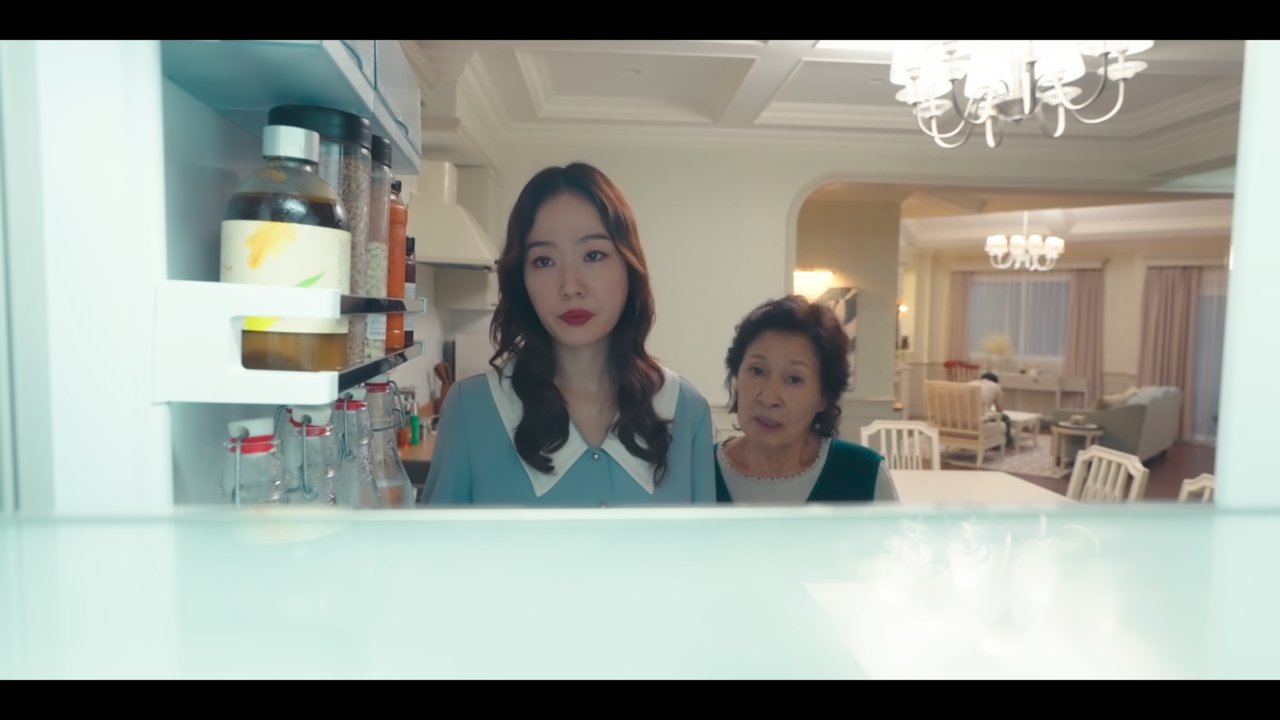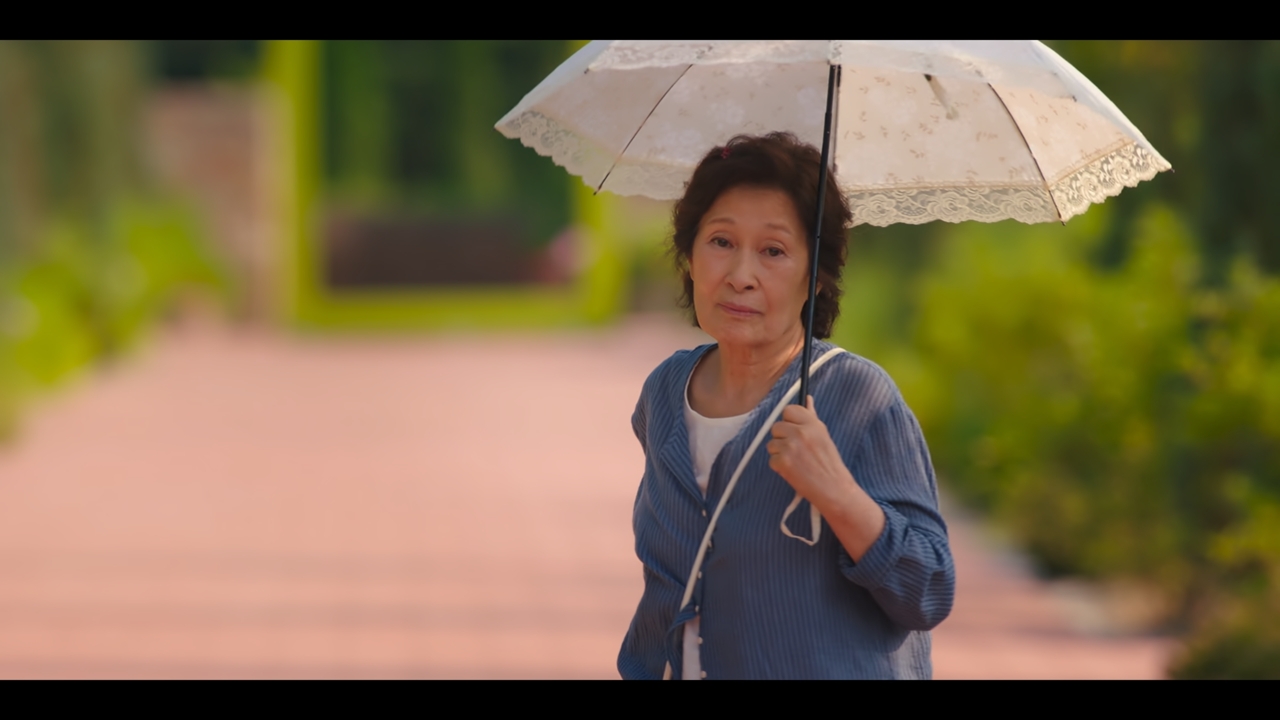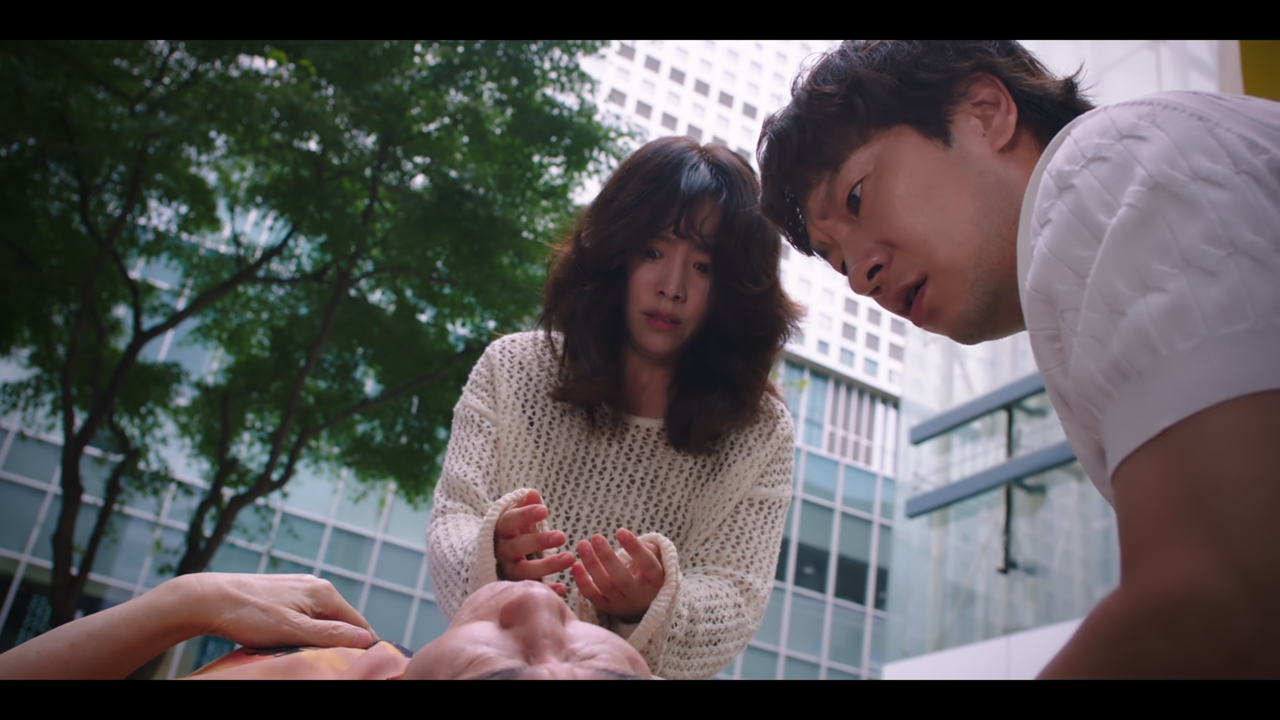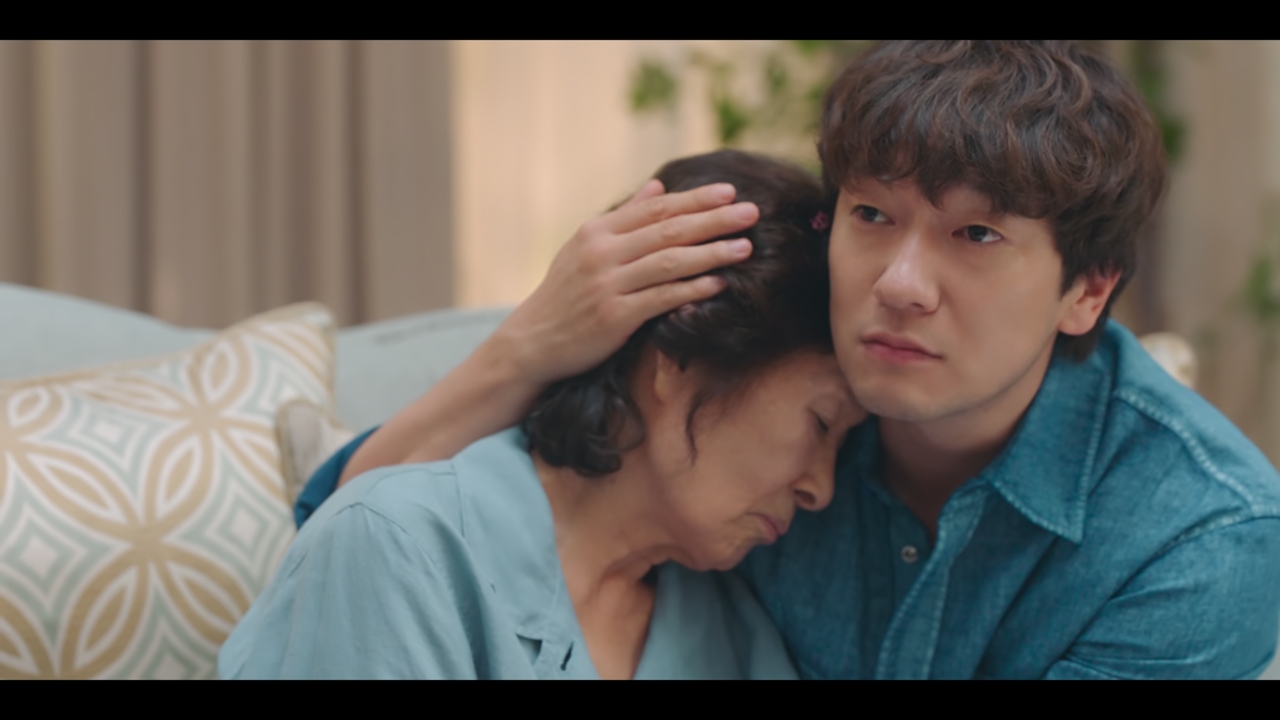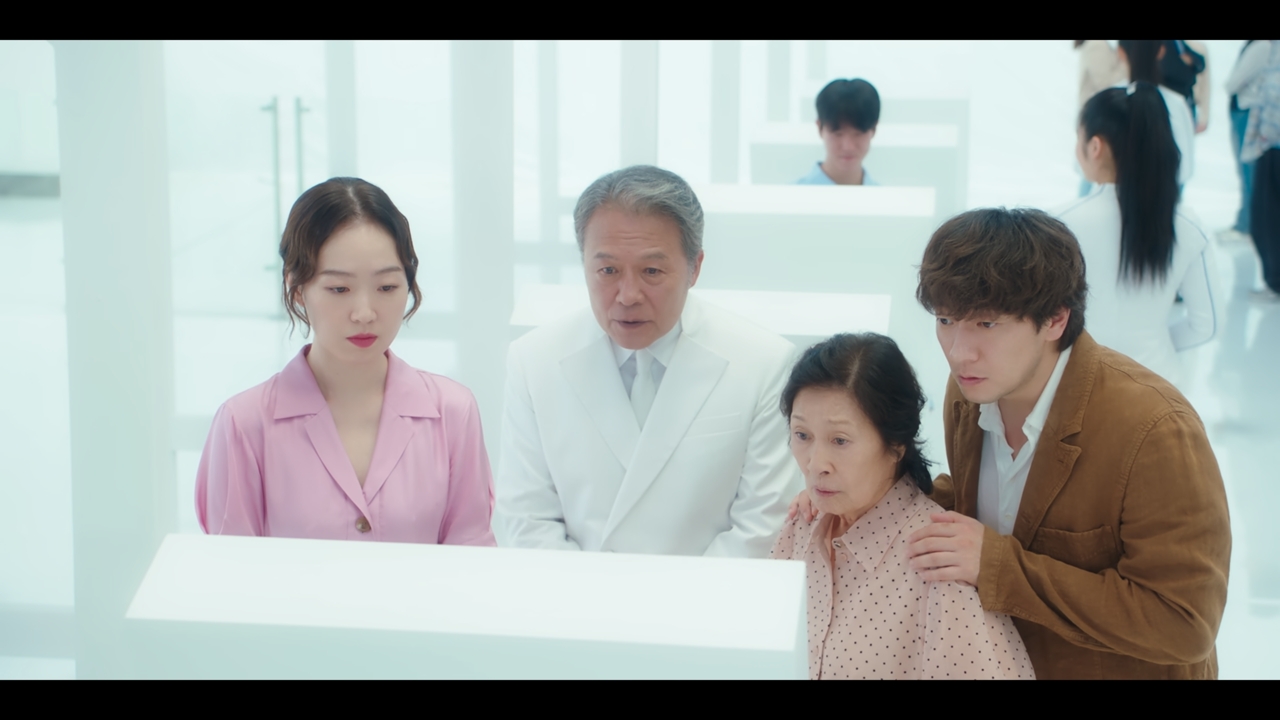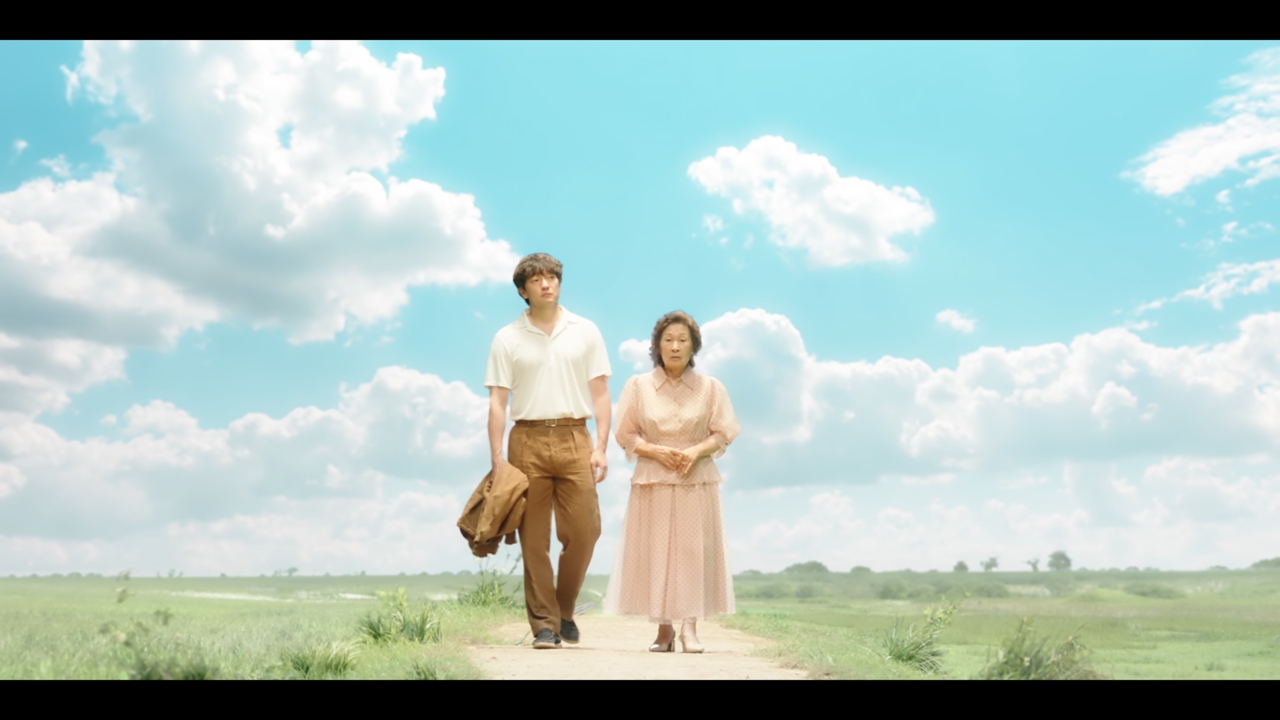Heavenly Ever After: Episodes 7-8 » Dramabeans
Heavenly Ever After: Episodes 7-8
by lovepark
Our couple has survived the fiery pits of hell, but their greatest challenge awaits them in heaven. As past fates influence present relationships, our wife and husband go through some growing pains even after decades of marriage. Misunderstandings stemming from miscommunication turn into petty arguments and resentment, but if both sides are willing to talk, there is still hope for them yet.
EPISODES 7-8
In the world of Heavenly Ever After, paradise was never a final destination but a stop along a path towards purification. To put another way, the dead merely pass through until they reincarnate into another life. For some, it means choosing a chance to experience love without material comforts, and for others, it’s an opportunity to atone.
For our heroes, though, reincarnation is still a ways away, and the most pressing issue for Hae-sook at the moment is identifying the source of her growing anxiety. Nak-jun jokes that she must be worried about his ultra-handsome looks attracting attention, but as they watch a debate about marriage on TV, Hae-sook gets her answer: it’s her mother-in-law.
As soon as she realizes this, Hae-sook goes outside to cover up her name on the gate only to come face to face with the very person she dreaded. Her mother-in-law happened to watch the same program which mentioned Hae-sook and Nak-jun, so she dropped by to visit in the dead of the night. She surveys every nook and cranny of their home with silent judgment as Hae-sook hovers near her shoulder and then leaves just as abruptly as she arrived.
The fear of living with her terrible mother-in-law again turns from unlikely to possible as Hae-sook finds her in her house the next day cleaning up the place, filling the fridge with food, and replacing their dishes. Her actions seem helpful, and to her son, nothing seems amiss. However, her mother-in-law’s words contain thorns, and given their history, Hae-sook has no reason to believe things will be different this time around. Thus, when her mother-in-law asks to go somewhere together tomorrow, Hae-sook ditches their plans and goes to meet with her friend instead.
Having grown closer to the pastor after their outing and his post-field trip cold, Hae-sook makes up excuses to spend as much time away from home as possible. First they harvest sweet potatoes, then they make fresh kimchi, and lastly they brew some sikhye. By the time they enjoy their meal, the sun has set, and Hae-sook is certain that her mother-in-law must have left by now.
While the pastor watches Hae-sook leave, he thinks to himself that the church has always been a place of waiting for him. He waited for his mom to come get him; he waited for God to answer his prayers; and now, he waits for his only friend to come see him. It’s a poignant sentiment delivered with so much heart yet little fanfare, and the unadorned portrayal of his longing emphasizes the conflicting emotions behind their lovely friendship. Their relationship has been an unexpected highlight of the show, and it’s scenes like this that make them feel complex and more than simple gag characters.
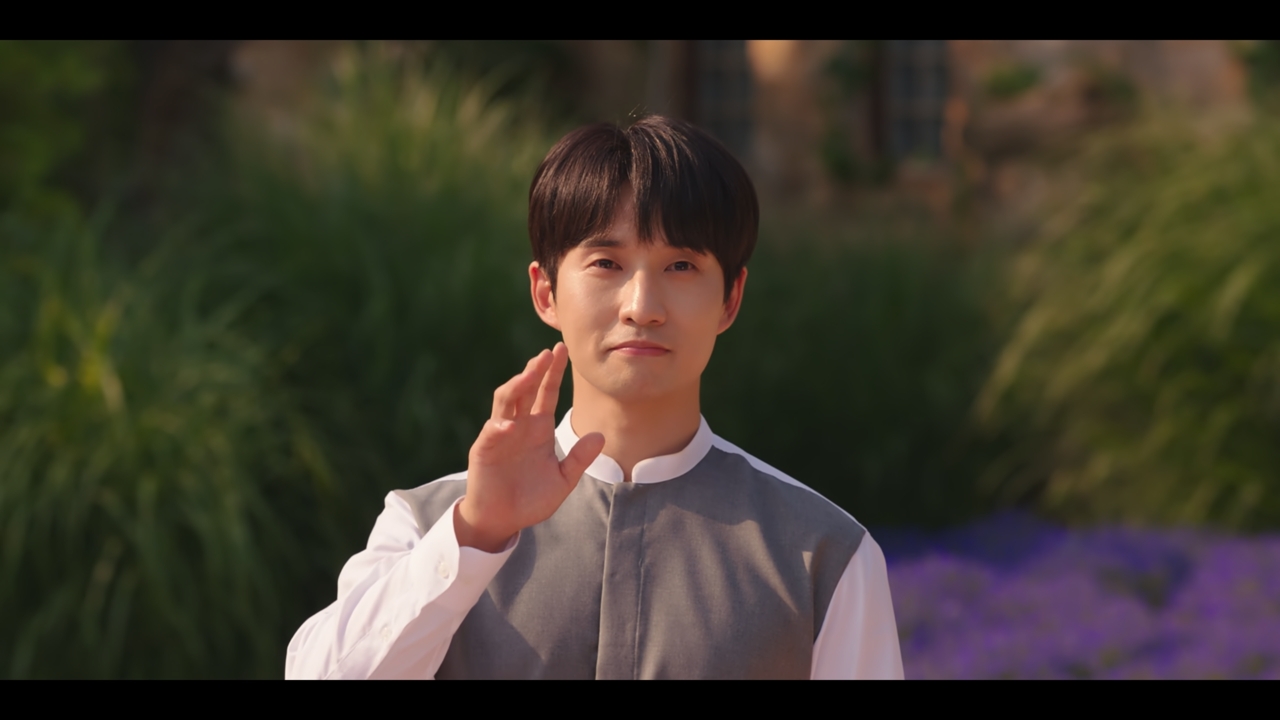
By the time Hae-sook gets back, her mother-in-law has just left, and Nak-jun puts the clues together that his wife must have stood her up. He asks Hae-sook why she can’t get along with his mom who died young and only lived with them for five years, and she tells him that she wishes he would set firmer boundaries with her. Their conversation goes nowhere as they only end up hurting each other’s feelings rather than listen to the other’s concerns, and neither side bends as they ignore the underlying issue festering in their relationship.
While the house experiences winter thanks to Hae-sook and Nak-jun’s cold shoulders, Young-ae is living in spring in her free time. After laying eyes on the glowing center president, our brusque ward has fallen in love and trying out a new look in heaven. She does her best to manufacture any type of connection with him, but the president spurns all her advances (including her seductive dances) and eventually cages her outside his office to keep her away.
Young-ae, of course, isn’t the only one on side quests since Som-yi is wandering the living world with Nak-jun and getting closer to the truth. With his help, they find the man with the Hawaiian shirt, but seeing him fills her with rage to the point where she breaks the rules that bind them and manages to physically choke him. Nak-jun intervenes, sparing the old man’s life, but there is clearly something between Som-yi and this man that feels ominous.
At church, Hae-sook notices that the sikhye has fermented too long and turned into rice wine. She suggests making tteok with the liquor, but during the baking process, she taste tests one glass too many and falls asleep. Without any supervision, the pastor gets curious and tries some too, and by the time Hae-sook wakes up from her nap, he’s completely drunk and riding a “bike” outside (it’s a sign painted on the ground that he thinks is real).
The two of them are taken into custody for disturbing the peace, and at the center, Nak-jun is surprised to find his wife struggling to fill out an incident report. Momentarily forgetting their fight, they break their vow of silence and awkwardly walk home where they finally open up and talk.
Hae-sook tells Nak-jun that she drank whenever life was hard and hid it from him to not worry him. This also includes the time with his mom, and Hae-sook recalls how she always gave her the fish heads during meals. One day, Hae-sook ate the main fish first, and her mother-in-law scolded her for how she was raised, making a knowing jab about her upbringing. She shares how she never felt accepted back then, and Nak-jun finally understands why it was so hard for Hae-sook to be around his mom.
With Nak-jun extending the olive branch first, Hae-sook returns the gesture and goes to apologize to her mother-in-law for her previous behavior. However, when she arrives, she notices that her mother-in-law is giving everything away and learns that she applied for reincarnation. Hae-sook relays the information to her husband and comforts him over drinks as he gets ready to say goodbye to his mom.
When the time comes, Hae-sook and Nak-jun accompany his mom to her final journey, but as they go through the process, he is shocked to hear that she chose a rather difficult next life. He tries to persuade her to reconsider, but the center president steps in and supports her decision, calling it brave and noble. Life repeats and karma accumulates – and in the mother-in-law’s case, she has reflected on her actions and chosen to bear the consequences. She regrets not treating Hae-sook kinder when they were alive, but as it turns out, their fate was actually more connected than either knew.
Before she steps through the gate, the mother-in-law sees her past lives, and in them, she was once Hae-sook’s close friend, enemy, and even daughter-in-law. Hae-sook cries as she watches her past self cause her mother-in-law’s death, and she learns, once again, that life is made up of connections so be kind to everyone because anyone anywhere could be a friend, a loved one, a savior, or a victim.
As our lovely couple grows closer to one another through this experience, a different kind of trouble may hit them soon. While traveling the living world with Nak-jun and regaining pieces of her memory, Som-yi starts to develop feelings for someone she should not and even prays for forgiveness at church. However, there must have been a reason Nak-jun felt compelled to save her on the train that day, and it seems we’ll soon learn why since the old man Som-yi hates for unknown reasons is the same detective Nak-jun was looking for.
There’s a lot of mystery surrounding Som-yi, and while the show is teasing a possible love triangle (or at least pining on her part), it feels like a misdirection. It’s still unclear who Som-yi is and how she is connected to our main couple, but one thing is clear, they are linked to each other, even if they don’t know it. Plus, with the show introducing the concept of past lives, the possibilities have broadened. I also found it interesting that Som-yi’s memories seemed to take place in the past yet her current form hasn’t aged. So far everyone has boarded the train at the age they died, which could suggest that Som-yi has been wandering between worlds for decades or she was originally from the afterlife but boarded the train again. Whatever the case may be, she’s definitely an outlier.
Aside from the possible Som-yi drama, I’m glad the show is addressing the natural issues many couples face that our protagonists are only now dealing with in heaven. Though they love each other, it’s obvious that his accident derailed their lives and influenced how they interacted. The whole premise of the show is essentially the result of miscommunication, and the mother-in-law situation was simply another example of it. Hae-sook struggles to share her troubles with her husband, and Nak-jun fails to understand his wife. Both sides are talking, but when neither will listen, it causes misunderstandings. It was only when Hae-sook was able to talk about what really bothered her (his mom mistreated her and made her feel like an outsider) that Nak-jun was able to understand her apprehension, and once they were no longer trying to win the argument, they were able to reflect on their actions and be flexible. A relationship needs more than love to work, and while it is a nice sentiment to be considerate towards everyone because of fate, it’s also important to be compassionate to those closest to you as well and not take their love for granted.
RELATED POSTS


